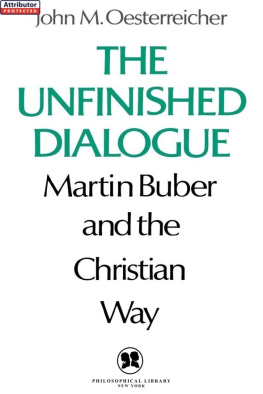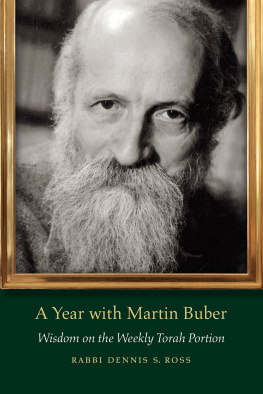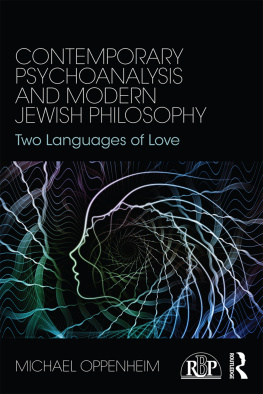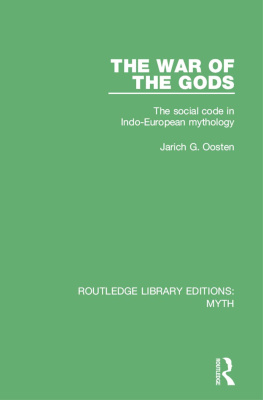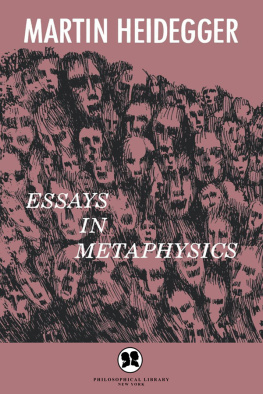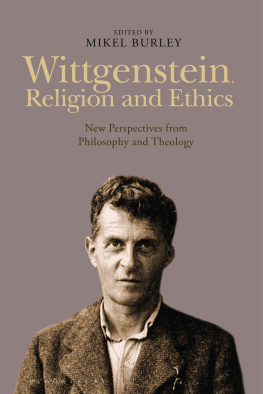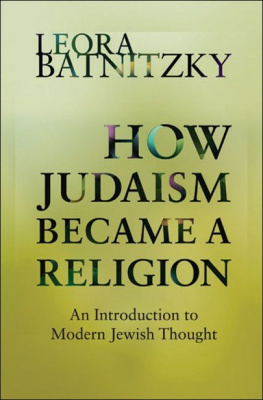Jewish Philosophy as a Guide to Life
THE HELEN AND MARTIN SCHWARTZ LECTURES IN JEWISH STUDIES
Sponsored by the
Robert A. and Sandra S. Borns
Jewish Studies Program
Indiana University
Jewish Philosophy as a Guide to Life
Rosenzweig, Buber, Levinas, Wittgenstein
Hilary Putnam

This book is a publication of
Indiana University Press
601 North Morton Street
Bloomington, IN 47404-3797 USA
http://iupress.indiana.edu
Telephone orders 800-842-6796
Fax orders 812-855-7931
Orders by e-mail
2008 by Hilary Putnam
Reprinted by permission of the publishers from Hilary Putnams Introduction in Understanding the Sick and the Healthy by Franz Rosenzweig, , Cambridge, Mass.: Harvard University Press, Copyright 1999 by the President and Fellows of Harvard College.
Reprinted by permission of the publishers from Hilary Putnams Levinas and Judaism in The Cambridge Companion to Levinas, edited by Simon Critchley and Robert Bernasconi, pp. , Cambridge, UK: Cambridge University Press, Copyright 2002.
All rights reserved
No part of this book may be reproduced or utilized in any form or by any means, electronic or mechanical, including photocopying and recording, or by any information storage and retrieval system, without permission in writing from the publisher. The Association of American University Presses Resolution on Permissions constitutes the only exception to this prohibition.
The paper used in this publication meets the minimum requirements of American National Standard for Information SciencesPermanence of Paper for Printed Library Materials, ANSI Z39.48-1984.
Manufactured in the United States of America
Library of Congress Cataloging-in-Publication Data
Putnam, Hilary.
Jewish philosophy as a guide to life : Rosenzweig, Buber, Levinas, Wittgenstein / Hilary Putnam.
p. cm. (The Helen and Martin Schwartz lectures in Jewish studies)
ISBN-13: 978-0-253-35133-3 (cloth : alk. paper)
1. Philosophy, Jewish. 2. Judaism. 3. Rosenzweig, Franz, 18861929. 4. Buber, Martin, 18781965. 5. Lvinas, Emmanuel. 6. Wittgenstein, Ludwig, 18891951. I. Title.
B755.P88 2008
181.06dc22
2007043966
1 2 3 4 5 13 12 11 10 09 08
For Ben-Zion Gold
with gratitude and affection
Contents
Preface
The essays that make up this volume grew out of the invitation to give the Helen and Martin Schwartz Lectures on Jewish Studies at Indiana University in 1999. I gave two lectures, on December 1st and 2nd, under the overall title Jewish Philosophy as a Way of Life. Those lectures were earlier versions of is an essay on Martin Bubers best-known book, I and Thou. The whole enterprise grew out of a course on Jewish Philosophy that I taught at Harvard University in 1997 and repeated in 1999; the impact of teaching that course on my thinking is described in the introduction. Like the course from which it grew, this is not a book for specialists, but an attempt to make clear to a general reader what these great Jewish thinkers were saying and why I find them so impressive.
I have profited from discussions with many people. As a glance at the footnotes will show, I am especially indebted to two fine scholars who I was also lucky enough to have as graduate students and from whose work I have continued to learn: Paul Franks and Abraham Stone.
Jewish Philosophy as a Guide to Life
Introduction
(Autobiographical)
Religions are communal and have long histories, but religion is also a personal matter or it is nothing. So I will explain how I came to write this book in personal terms.
In my days as a graduate student at U.C.L.A., the teacher who most influenced me was Hans Reichenbach, and my interests, like his, were centered on scientific method, scientific epistemology, and philosophy of physics. After I received my Ph.D., my interests broadened somewhat, but my first few publications (outside of pure mathematical logic, a field in which I was also active), were devoted mainly to philosophy of science. So how do I come, fifty-five years later, to be writing about three religious philosophers (arguably, the greatest Jewish philosophers of the twentieth century) Martin Buber, Franz Rosenzweig, and Emmanuel Levinas?
JOINING A MINYAN
The story goes back to 1975. By that time my philosophical interests had considerably broadened, but prior to that year they still did not include religion or Judaism. But 1975 was the year that the older of my two sons announced that he wanted to have a bar mitzvah! Although I had never belonged to a minyan (a Jewish congregation), during the period that I was active in opposing the Vietnam War, I had once given an Erev Shabbat talk (a Friday evening talk) at the Harvard Hillel Foundation about that war and my reasons for opposing it, and I had a very powerful and favorable impression of the rabbi who invited me to give it, and who participated in the discussion that followed. Rabbi Ben-Zion Gold was not only the director of the Harvard Hillel Foundation in those years, but was also the founder and spiritual adviser of one of the congregations that met for worship on the Jewish Sabbath. My memory is that there were three Hillel congregations in all, at that time (today there are more): an Orthodox congregation, a Reform congregation, and the one that Rabbi Gold had founded some decades previously, which called itself then and continues to call itself today simply Worship and Study (it uses the prayer book of the Conservative movement). So when I had to find a place for my son to have his bar mitzvah, I found it natural to go and talk to Rabbi Gold about the possibility of Samuel having the ceremony in the Worship and Study congregation. We agreed that my wife and I would come to services with Samuel for a year, and that he would study with a Jewish student (a philosophy major whom I knew, as it happened) to prepare for the ceremony. Long before the year was over, the Jewish service and Jewish prayers had become an essential part of our lives, and Rabbi Gold continues to be our teacher and friend to this day.
That an adult Jew starts attending services when one of his children has a bar- or bat mitzvah is not at all unusual. But I am also a philosopher. What did Iwhat could Imake philosophically of the religious activities that I had undertaken to be a part of?
DAVENING VERSUS TRANSCENDENTAL MEDITATION
Forgive a brief digression. Another part of the story is this: in those days many people were singing the praises of twenty minutes of something called Transcendental Meditation per day. Although I am sure that many of those people do find it very beneficial, something in me rebelled (perhaps unreasonably). I thought: well, in twenty minutes I can daven (say the traditional Jewish prayers). Why do I need to try something that comes from another religion? So I started to daven every morning (or afternoon, if I didnt find time in the morning), as I still do. I appreciate that what davening does to or in ones soul must be very different from what Transcendental Meditation does; be that as it may, I found it to be a transformative activity, and it quickly became an indispensable part of the religious activities that I just referred to.
THE TENSION BETWEEN PHILOSOPHY AND RELIGION IN MY LIFE
But to return to the question, what did I make
Next page

